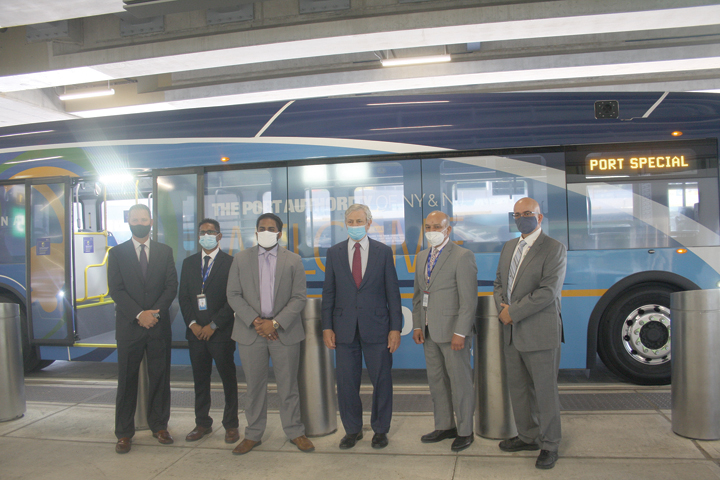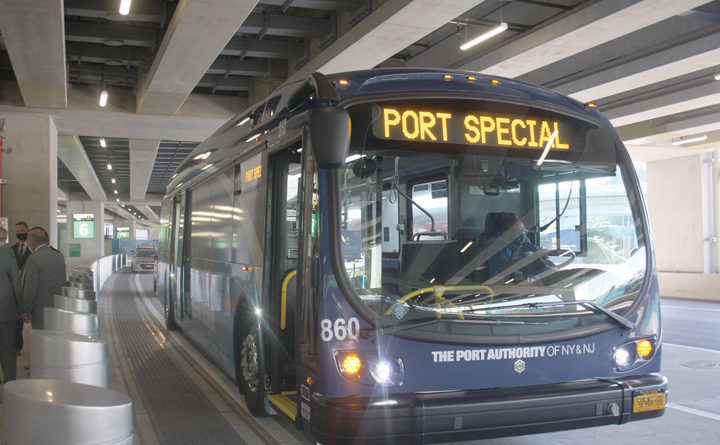Port Authority Rolls Out Zero Emissions Fleet
BY BENJAMIN FANG
The Port Authority of New York and New Jersey is one step closer to meeting its sustainability and environmental goals. Last month, the agency unveiled its fleet of 36 zero emissions shuttle buses and 19 accompanying charging stations at LaGuardia, JFK and Newark airports.
The shuttles, which travel between terminals and parking garages and also provide employee travel around the airports, are clean, quiet and efficient, according to Port Authority executive director Rick Cotton.
“We regard climate change as an existential problem,” Cotton said. “We are committed at the Port Authority to take one step to reduce our impact on the environment.”
In 2018, the Port Authority adopted a sustainability agenda that embraced the goals of the Paris Climate Accords, making it the first public transportation agency to do so. Cotton said the agency set out 12 specific initiatives to reduce its carbon footprint, one of which was to convert its airport shuttle buses to all electric by the end of 2020.
“We’ve been able to acquire the buses, get them inspected, and get them licensed and in operation three months ahead of our original timetable,” he said.
The conversion to an electric fleet is projected to save a combined total of approximately 1,600 tons of greenhouse gas emissions and about 24,000 gallons of diesel fuel annually. It will also eliminate 12,000 pounds of nitrous oxide and 900 pounds of particulate matter each year.
Altogether, the Port Authority is seeking to achieve a 35 percent reduction in greenhouse gases by 2025, and 80 percent by 2050, as outlined in the Paris Climate Accords.
Another step the agency has taken is converting 130 of its light-duty vehicles, which are used by employees and police officers, to electric. By 2030, the agency is aiming to convert over 600 of its light-duty vehicles, or half of the fleet, to electric.
Other sustainability goals include renewable energy commitments, improved energy efficiency and improving rail mass transit links to the three airports. Cotton noted that while the electric bus fleet is more expensive to buy initially, the cost savings over the life of the bus means it’s no more expensive to the operation when viewed in terms of life-cycle costs.
“The zero emissions buses have just been a home run,” he said.
Julie Tighe, president of the New York League of Conservation Voters, said in a statement that travelers, airport workers and the communities living near the airports should not have to breathe in dirty diesel bus fumes.
“Electrifying buses improves public health, enhances air quality and slashes transportation emissions,” Tighe said, “the sector which is the leading contributor to climate change.”





